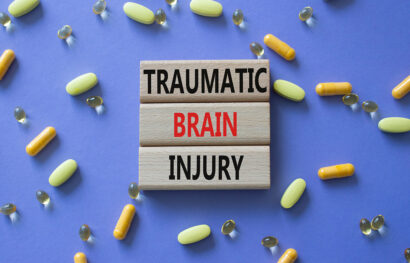Diagnosis and Treatment of Traumatic Brain Injury
Experienced Medical Care in Blue Springs, Missouri
 Have you suffered a bump or blow to the head in a fall or motor vehicle accident? Or maybe as the result of an assault? Even if the injury seems relatively minor, it could potentially have serious consequences. Don’t assume that, just because you never lost consciousness, your injuries are insignificant. You want a thorough examination from experienced medical professionals. You want Core Medical Center.
Have you suffered a bump or blow to the head in a fall or motor vehicle accident? Or maybe as the result of an assault? Even if the injury seems relatively minor, it could potentially have serious consequences. Don’t assume that, just because you never lost consciousness, your injuries are insignificant. You want a thorough examination from experienced medical professionals. You want Core Medical Center.
At Core Medical Center, conveniently located on Main Street in Blue Springs, we understand that every patient is different, with unique health concerns and individualized needs. We never take a “one size fits all” approach. We take the time to learn about you and your situation, so we can create a personalized treatment plan to accomplish your goals.
Our family practice has deep roots in the community. It was founded by Dr. Patrick Goldsworthy, who has more than 40 years of experience. His son, Dr. Aston Goldsworthy, proudly carries on the tradition of putting patients first.
What Is a Traumatic Brain Injury?
Traumatic brain injuries, or TBIs, are a consequence of any type of bump, blow, or other physical impact that damages your brain. Such impact can lead to swelling or inflammation, bleeding in the brain, skull fractures, or tissue damage, with both short-term and long-term physical and cognitive consequences. Because your brain is essentially the command center for the rest of your body, any interference with its function or capabilities can dramatically change your life.
Causes of TBI
In most instances, a TBI stems from a surface or object impacting your head or neck, or from the penetration of your skull by some foreign object. However, it’s important to understand that you can suffer a serious TBI without any impact or penetration. A whiplash-type injury— when your head snaps violently back and forth—causes your brain to careen off the inside of your skull. Whiplash injuries are common in motor vehicle situations where a driver slams on the brakes or makes impact with another vehicle or foreign object. You can suffer a TBI even though your head never makes an impact with anything.
How Do You Know If You’ve Suffered a TBI?
As a general rule, imaging tests, such as X-rays, MRIs, and CT-scans, won’t provide direct evidence of a TBI. There are, however, a number of common symptoms to watch out for:
- Persistent headaches that last more than 12 hours
- Uncharacteristic sensitivity to light, sound, smell, or touch
- Nausea and/or vomiting that won’t go away
- Memory loss, challenges with focus or concentration, challenges putting thoughts together or understanding others
- Communication problems, including speech and written exchanges
- Blurred vision
- Emotional challenges, including dramatic mood swings
- Depression, anxiety, or other emotional responses
- Amnesia
- Interference with sleep patterns—either insomnia or excessive fatigue
Using the Glasgow Coma Scale to Determine the Presence and Severity of a TBI
One of the most effective tools for early diagnosis of TBI is the Glasgow Coma Scale (GCS), developed in Scotland about 50 years ago. Using the Glasgow Coma Scale, we’ll carefully observe how you respond to specific stimuli:
- Your verbal response— We’ll attempt to engage you in conversation. The better you are able to understand and participate in the conversation, the higher you’ll score.
- Your body’s motor response— We’ll ask you to engage in certain physical tasks. The better your body moves, the higher you’ll score.
- Your eye opening response— We will carefully observe how your eyes move in response to external stimuli.
Once we’ve observed your responses to the above stimuli, we’ll calculate a total score. You’ll have a total of 15 points available. A score of 13 or higher signifies a mild TBI, commonly referred to as a concussion. A score of 8 or below is deemed a severe TBI. All scores in between are diagnosed as moderate.
The BrainView NeuralScan System
At Core Medical Center, we are excited to offer our patients access to the BrainView NeuralScan System, a portable, non-invasive software and hardware tool that can provide early warning of potential cognitive dysfunction.
Let Core Medical Center Treat Your TBI
At Core Medical Center, we understand the potential risks associated with any type of bump or blow to the head, and we can quickly determine the nature of your injury and the care you require. To learn more, contact Core Medical Center online or call our offices in Blue Springs, Missouri, at (816)336-9970.




